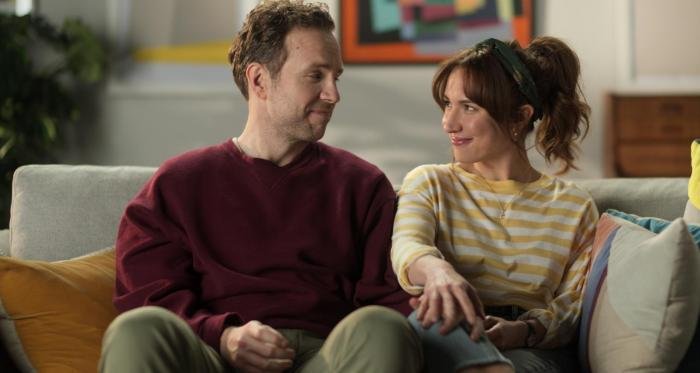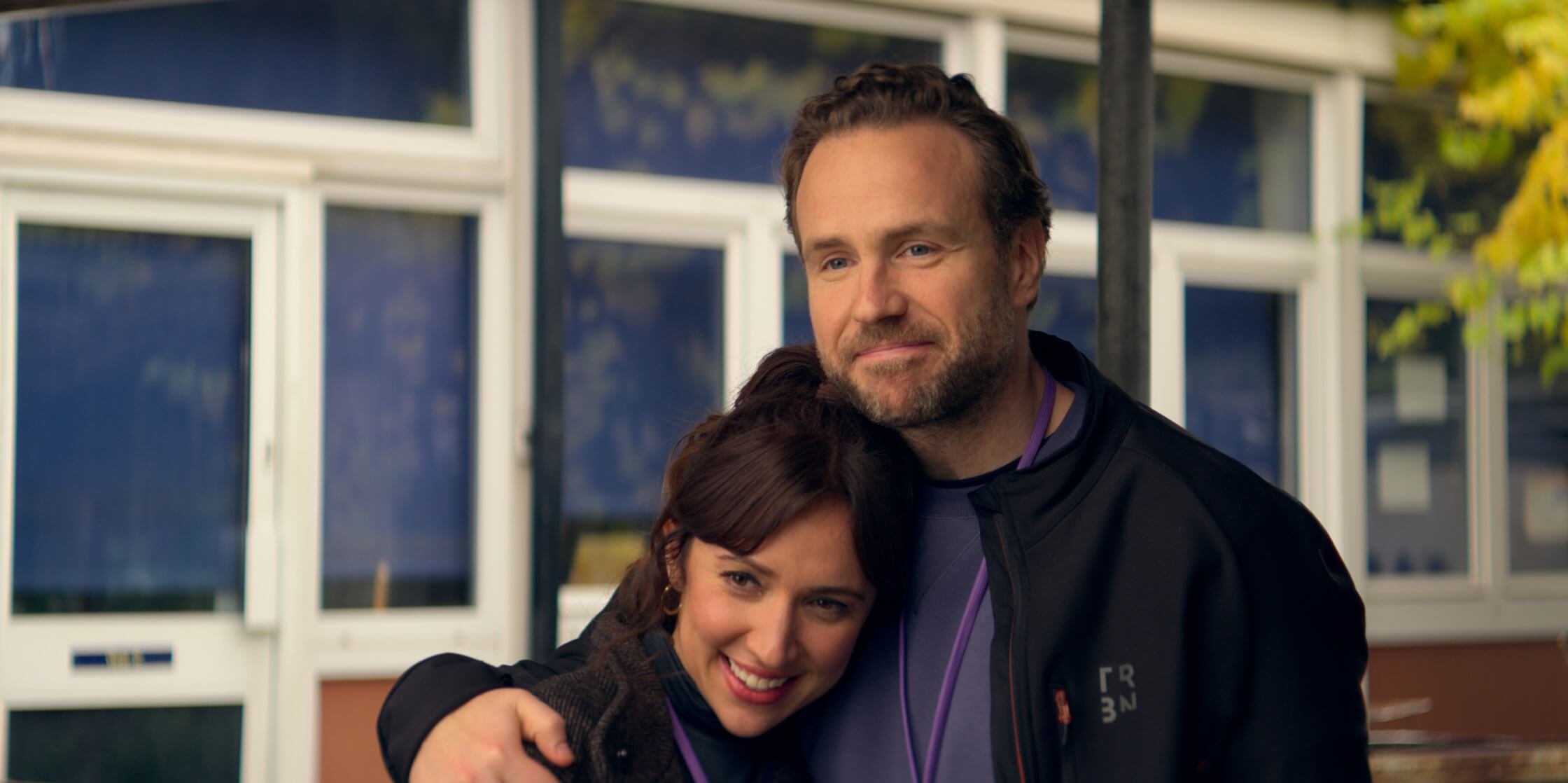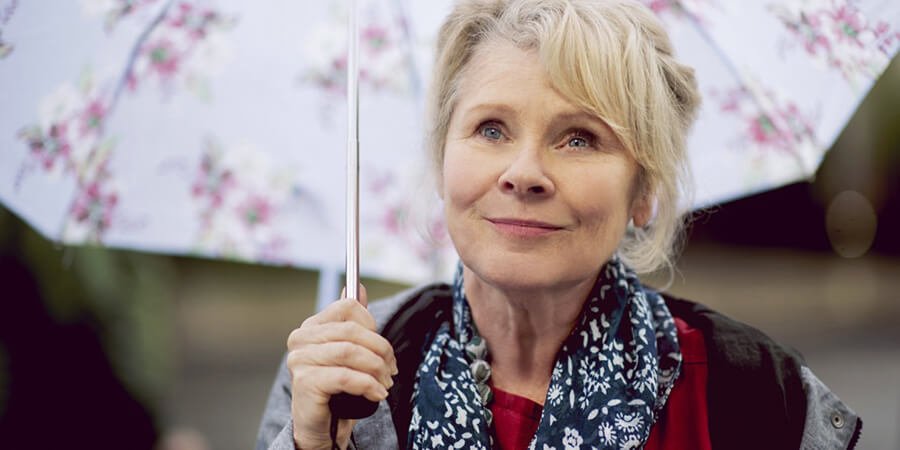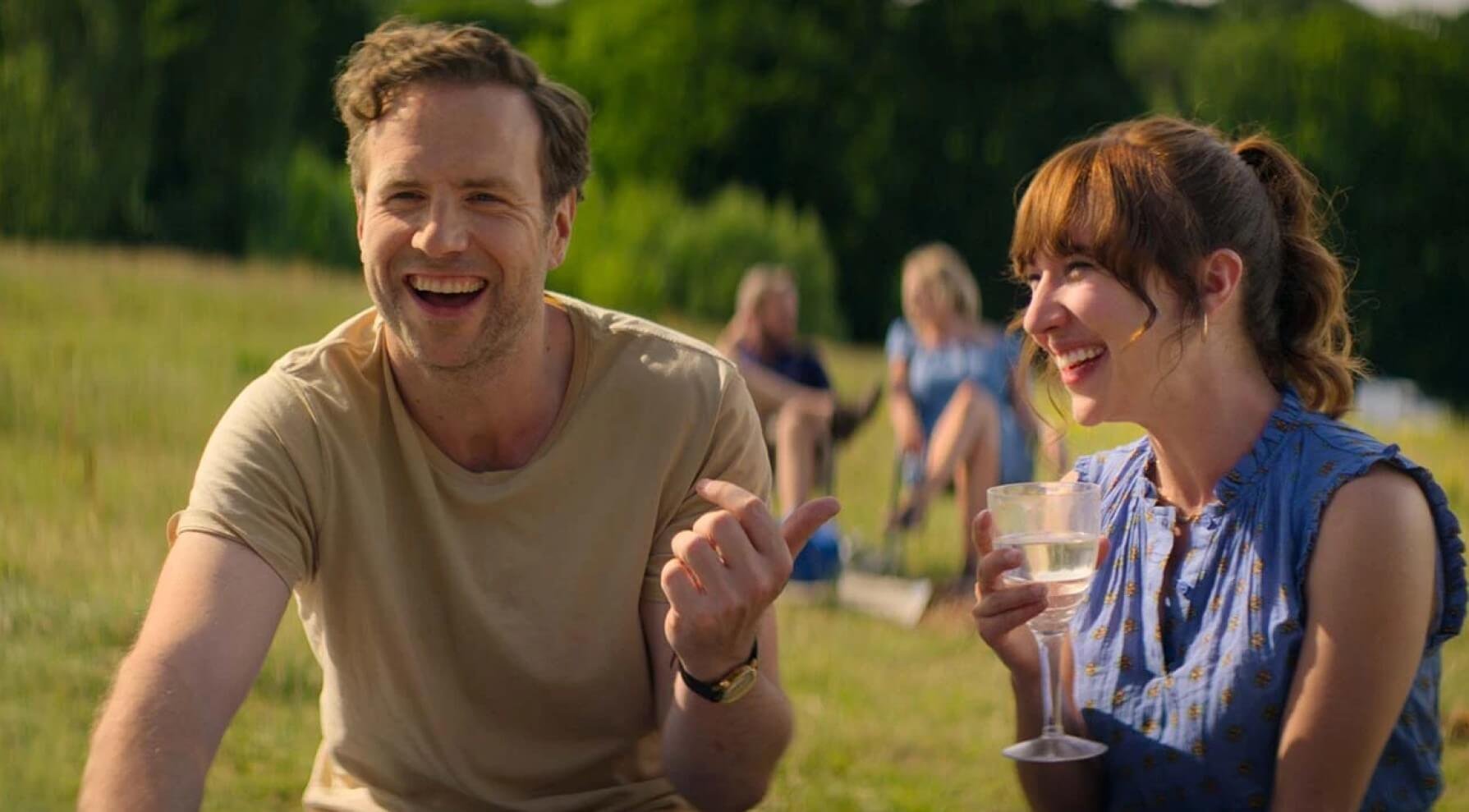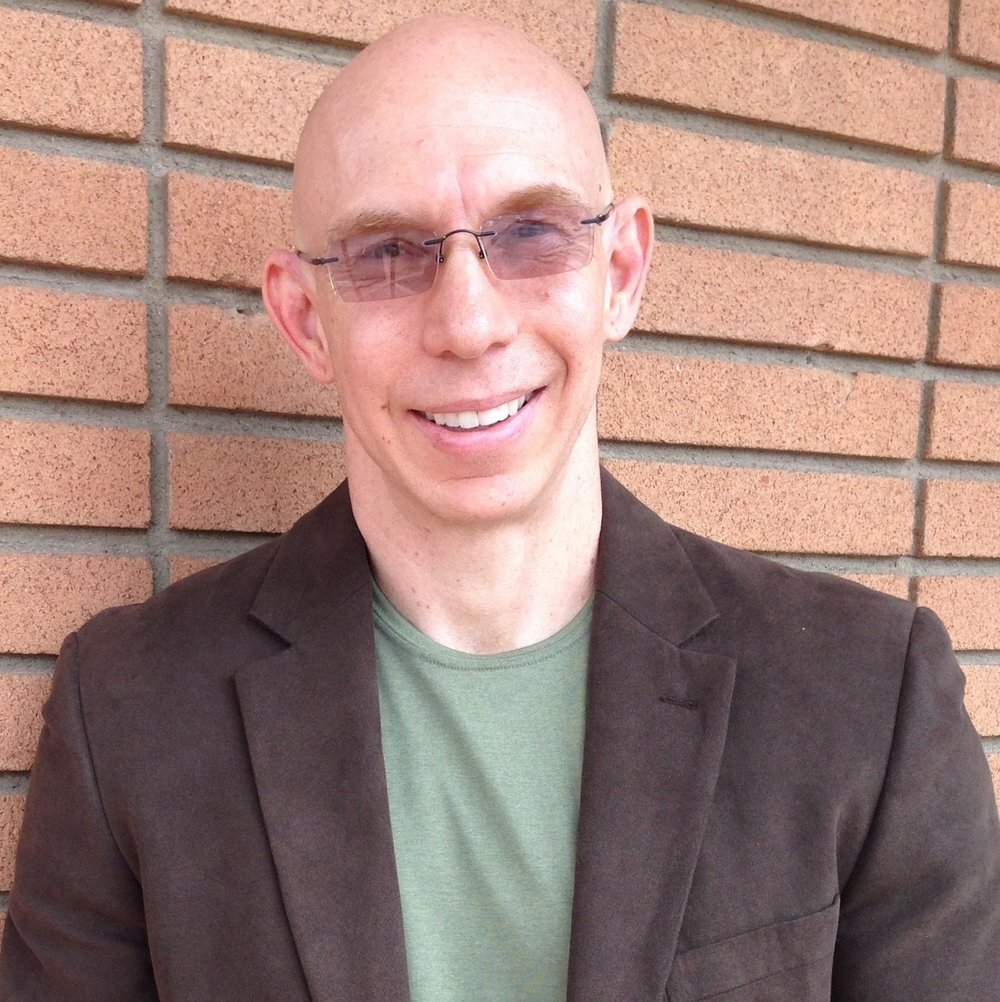Depending on which website you read, adoption wait times in the United Kingdom average from 6 to 26 months, but no matter where a hopeful couple and a prospective child land on this scale, it’s a long stretch for everyone involved. Nikki (Esther Smith) and Jason (Rafe Spall) - a lovely 30-something pair living in Camden, a hip and lively London district – have first-hand knowledge of this bureaucratic and emotional passage to possible parenthood. Esther and Rafe star in “Trying”, the comedy/drama Apple TV+ series that follows Nikki and Jason’s struggles, small victories, doubts, and grand smiles through their day-to-day lives and adoption marathon.
Creator/writer Andy Wolton, Esther, Rafe, and an engaging ensemble cast balance comedic and affecting tones in this charming show that is nearly complete with its third season. Esther and Rafe arrived in Phoenix and graciously met with the Phoenix Film Festival and other media outlets for this enjoyable group interview. The stars thoughtfully chatted about their characters’ relationship, Mr. Wolton, fans’ feedback, and more.
Seasons 1, 2, and 3 are available to stream on Apple TV+, and Episode 3.7 (of the 8-episode season) arrives on Aug. 26!
Q: Nikki and Jason are supportive of one another. They are a solid couple and have the same goals. They share a united front. I think this dynamic really works with the show, and even though Nikki and Jason face bumps in the road, they don’t run into relationship conflicts very often. Adopting a child is difficult enough. I like that aspect of “Trying”. How do you feel?
RS: I think it’s very real. I think it’s aspirational, really. You want your own life to have a relationship like Nikki and Jason’s. They face adversity, and it may cause arguments sometimes, but after the arguments, after the disagreements, their relationship deepens. I think that’s really wonderful. Beautiful, and they seemingly have found the right person. Nikki says a wonderful thing at the end of the first season.
She says, “Even if this (adoption) doesn’t work, you’re enough. It’s enough. We’re enough.”
That’s a beautiful sentiment. We can all aspire to find that person (who) sees us, accepts us. All we want, as humans, is to be seen, and they really see each other. I think that they are a great couple, and I love them. When we finish a season, I miss them.
Q: Nikki calls Jason, “Jas.” It’s the little things that endear the audience to this couple. Did you come up with that, or was that written?
ES: Oh my gosh, I can’t even remember. I think we sometimes slightly get in trouble because I definitely add in more “Jases” than are written in the scripts, just because it feels like such a normal, natural thing as a term of endearment.
RS: I think it’s a mix of both. The whole show is written by one guy, Andy Wolton, which in this day and age is really unheard of. He’s actually written to our voices as well. He’s written to our specific speech patterns. There is some room for improvisation, but most of the funny stuff in the show, 99.9 percent of the good stuff, is written by him. We do add the odd thing now and again.
Q: Imelda Staunton plays Penny, a social worker who works with Nikki and Jason on their adoption journey. When I first saw Penny on-screen, I thought, “Oh no, she’s going to be bad news.” [Esther and the interviewer laugh.] But Penny is very supportive, and she fights for them. How important is it that Penny is their ally? I think it’s infinitely important because Nikki and Jason are new to the process.
ES: Absolutely. I feel they need (support) because it has taken them a lot to have the courage to go, “Do you know what? Yea, let’s go down this route.”
They (need) people on their side. What I love about Imelda’s character is she’s not this kind of “normal, what you’d expect” social worker. (Penny) is a kind of a pay-as-it-comes, bit-by-bit, step-by-step (person). The first time we meet her, she’s holding up a piece of her clothing because someone has thrown wee on it. She leaves it outside, and she just kind of bustles in. She plays with these two people particularly well because Nikki and Jason are also square-peg, round-hole people, particularly Nikki. I think Penny speaks to that and is probably (a) voice of wisdom. She’s a few steps ahead of them in life.
RS: There’s also no antagonist in the show, which is quite refreshing. There are no baddies. There’s no mustache-twirling. Everyone is trying to do the right thing, and to have someone of Imelda’s caliber, Oscar-nominated, one of our finest actors in the world (is wonderful). Obviously, there’s a lack of her in Season 3, but that’s because she’s now the Queen of England (in “The Crown”). When she’s finished her reign, perhaps, she’ll come back and hang out with the peasants again. [Everyone in the interview room laughs.]
Q: Nikki’s sister Karen (Sian Brooke) is with Scott (Darren Boyd), and they’re not a perfect couple, not a perfect match, but they play important roles on the show. At first, I wasn’t generally happy with them together, but I’ve grown to accept them. How do Nikki and Jason feel about Karen and Scott as a couple?
ES: Maybe similarly to you, I feel like Nikki definitely had huge reservations about Scott being part of the family. But as it has gone on, they somehow work as a couple, and I love watching their scenes together. (Rafe and I) never get to see them. You read (their scenes) in the scripts, but you focus on your part of the story. It’s a lovely treat when you’re watching it all back, and there’s this other kind of world going on. I find them heartbreaking. I find them hilarious. And they do really work. I’d like to think that Nikki and Jason perhaps tolerate Scott. [Esther laughs.] They tolerate him.
RS: Scott means well, and he’s a very vulnerable character. Andy’s written this character (who) could seem a little heightened, but (he) roots him with heart. He’s full of heart.
ES: There are those lovely little bits and pieces in the series, one where Karen is really cold. (Karen and Scott) are coming out of the tube station, and he wraps his scarf around her. Yea, underneath all this (stuff), yea, (he cares. He loves her). (Scott’s) just like all of us. Perhaps, we’re all presenting a version of ourselves to protect ourselves.
Q: There is some tension between Nikki and their potential adoptee, Princess. Esther, not being a parent yourself, what do you pull from to give such a sincere performance?
ES: Maybe it’s helpful that I’m not a parent because Nikki isn’t, and then she becomes one quite quickly. What I find completely heartbreaking about the Nikki-Princess thing is Nikki tries so hard, and she’s such a good person. She just wants the best, but inevitably, you can’t control what a person, especially a 10-year-old, is going to be like, particularly a 10-year-old who probably (has) a lot of trauma for whatever they’ve been through in their life. Nikki is so patient and so present with her, and yea, I find it completely heartbreaking. But, I also love that (because Nikki) wants (to be a parent), so she’s really fighting up against it.
RS: Also, from an outsider’s point of view, Esther is as lovely with Eden, who plays Princess, as Nikki is with Princess. Esther’s really kind and gorgeous and lovely with her, so it comes naturally to you, I imagine. [Rafe turns to Esther.]
Q: In this day and age of overpopulation, is Nikki and Jason’s story an important one, adoption versus having your own children?
RS: It would be disingenuous to say that was the objective of (this) storyline because it isn’t. This is a couple who have tried to conceive naturally, and they haven’t been blessed with that ability. So, I can’t really talk to the politics of it, but in terms of representation, in terms of one in seven people affected by infertility, it’s really wonderful for people to be seen, for their story to be represented. (Infertility) is something that touches a lot of people’s lives, and it’s a source of great pain to very many folks. So, I can say (it’s) great that we represent that.
ES: What’s been a lovely bonus of this show is the amount of people that reach out (to us). They’re going through the (adoption) process, or they have gone through the process, or they’re having fertility struggles. It’s like a lovely stream of people constantly getting in touch. They feel seen (because of the show). They feel like (our show) is an accurate portrayal of what they have gone through. They see themselves in these two characters, and most importantly, they don’t feel alone. It’s so great to be a source of comfort.



